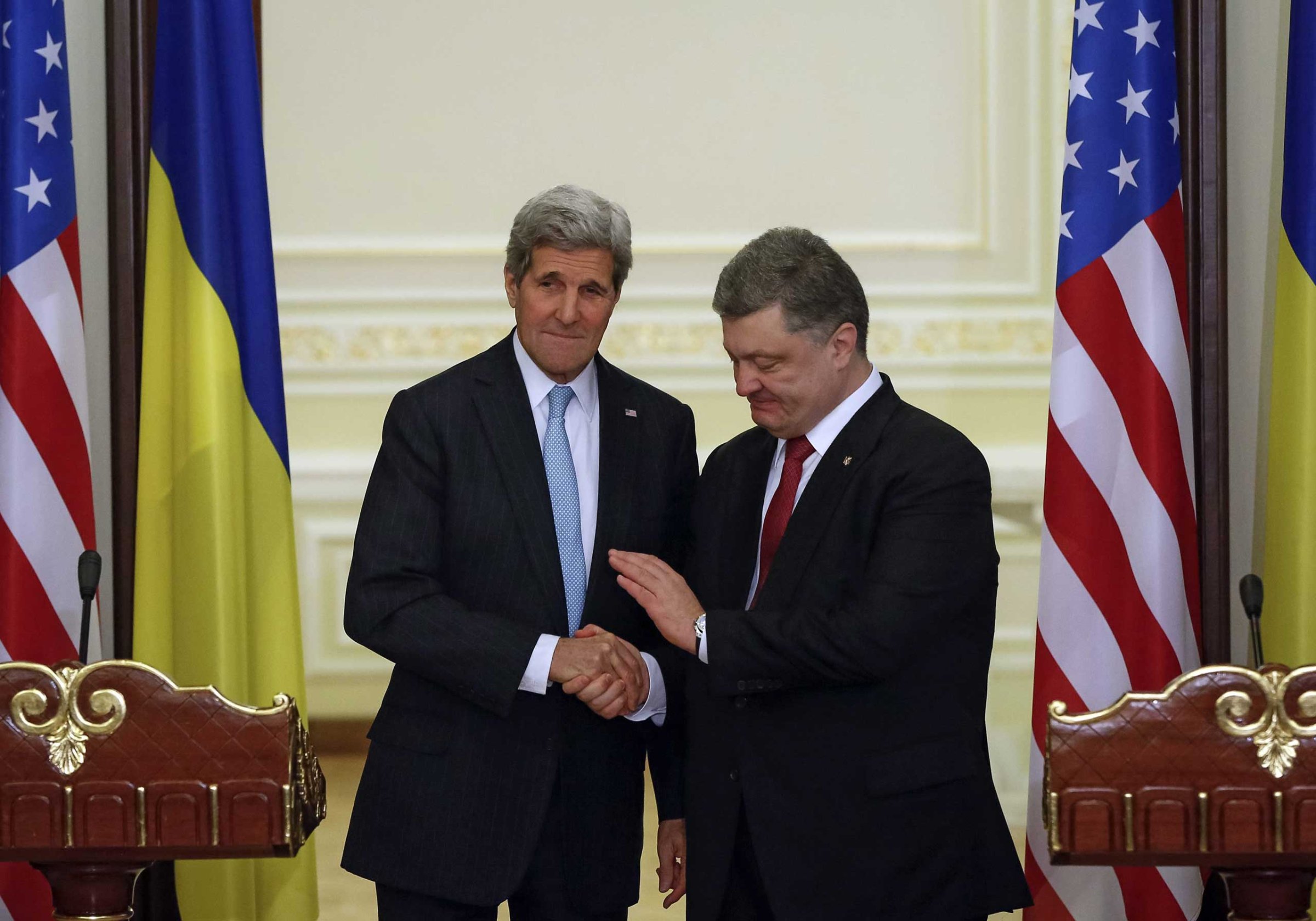
The Ukraine crisis may represent the greatest threat to European security since the Cold War, but diplomatic efforts to resolve it have been sporadic and unsuccessful. But on Thursday, Western leaders launched a new effort to bring an end to the conflict, with French President Francois Hollande and German Chancellor Angela Merkel traveling to Kiev to join U.S. Secretary of State John Kerry for talks.
Hollande promised he and Merkel would present a new peace initiative which could guarantee the “full territorial integrity” of Ukraine. Meanwhile, Kerry made it clear that while the U.S. sought a diplomatic solution to the conflict, which has killed over 5,000 people since April, it could not close its eyes to Russian tanks crossing the Ukrainian border. But with pressure mounting on Western leaders to bring an end to the bloodshed, analysts say negotiations are unlikely to achieve anything as long as both sides remain committed to different visions of what ‘resolution’ would look like.
“The Russians have made it quite clear and been quite explicit about what they want. That doesn’t make it right that we should give it to them, but there should be no misunderstanding that Russia’s ambitions are in direct contradiction to Kiev’s desires and Western policy,” says James Nixey, head of the Russia & Eurasia Program at London think-tank Chatham House.
As Nixey sees it, Hollande’s promise to guarantee “the full territorial integrity of Ukraine” is fundamentally impossible because the term means something quite different to the two sides of the conflict. “It’s fantasy land to think these two things could add up,” says Nixey.
See the Incredible Devastation of the Iconic Donetsk Airport
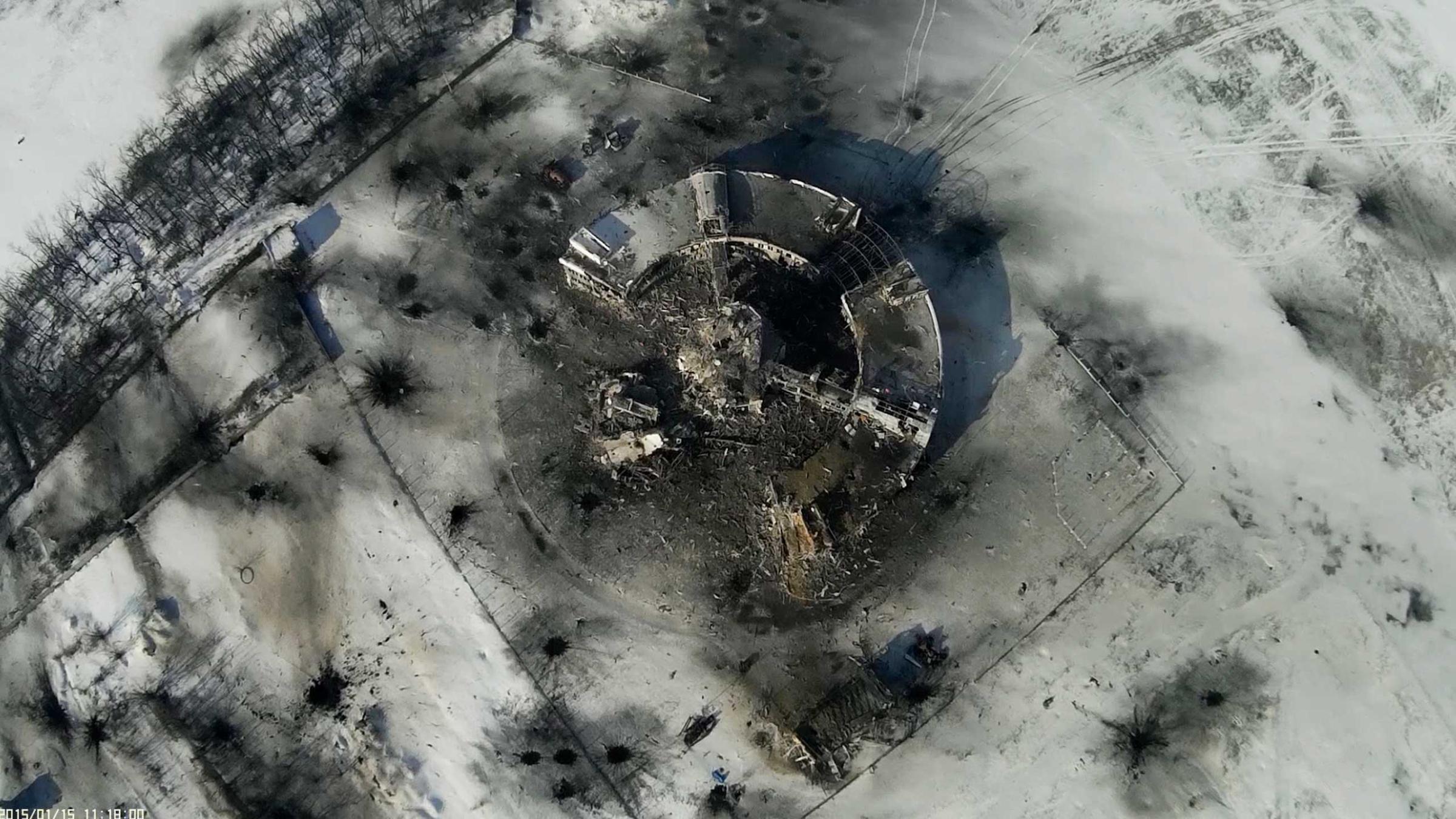
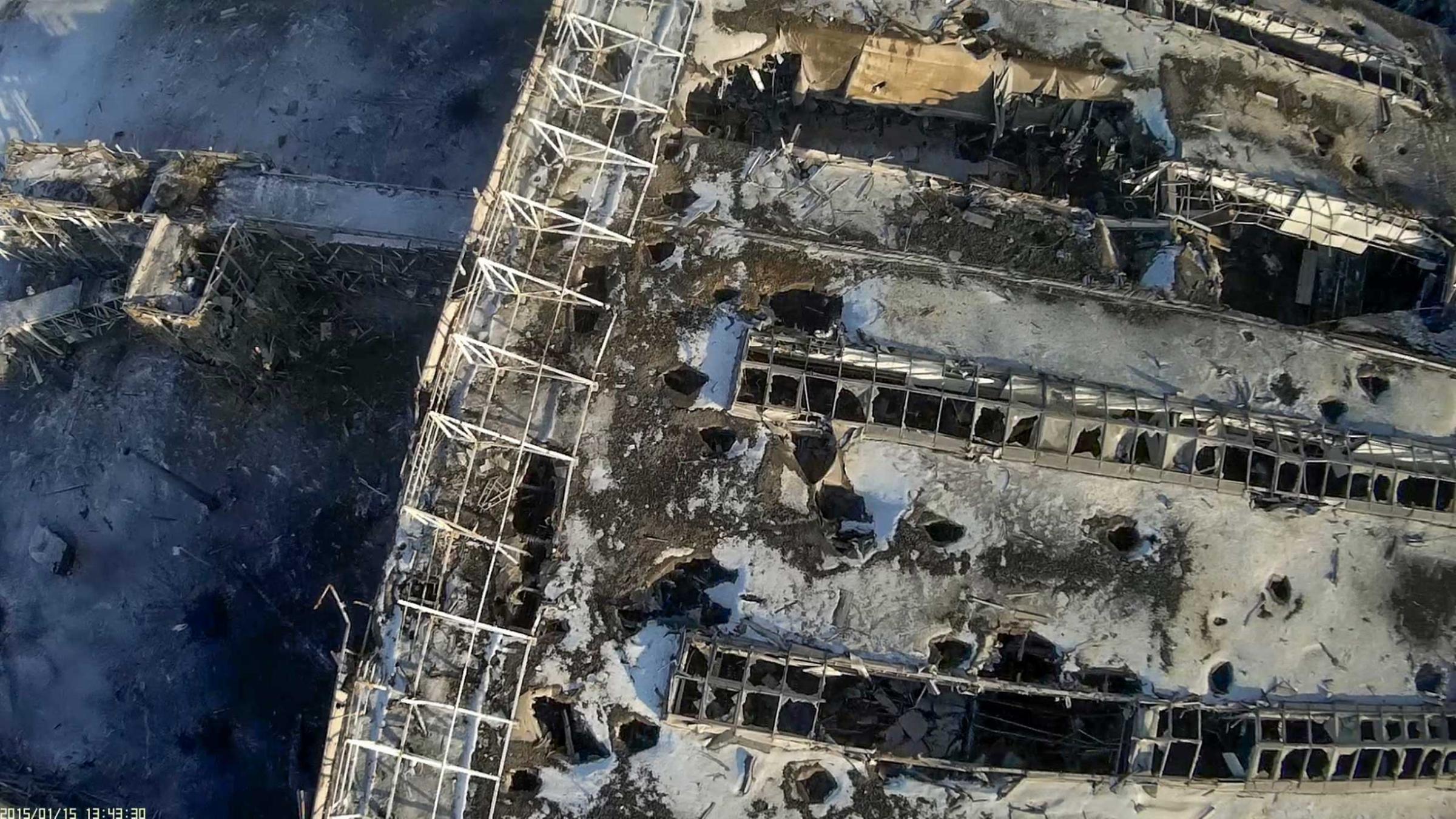
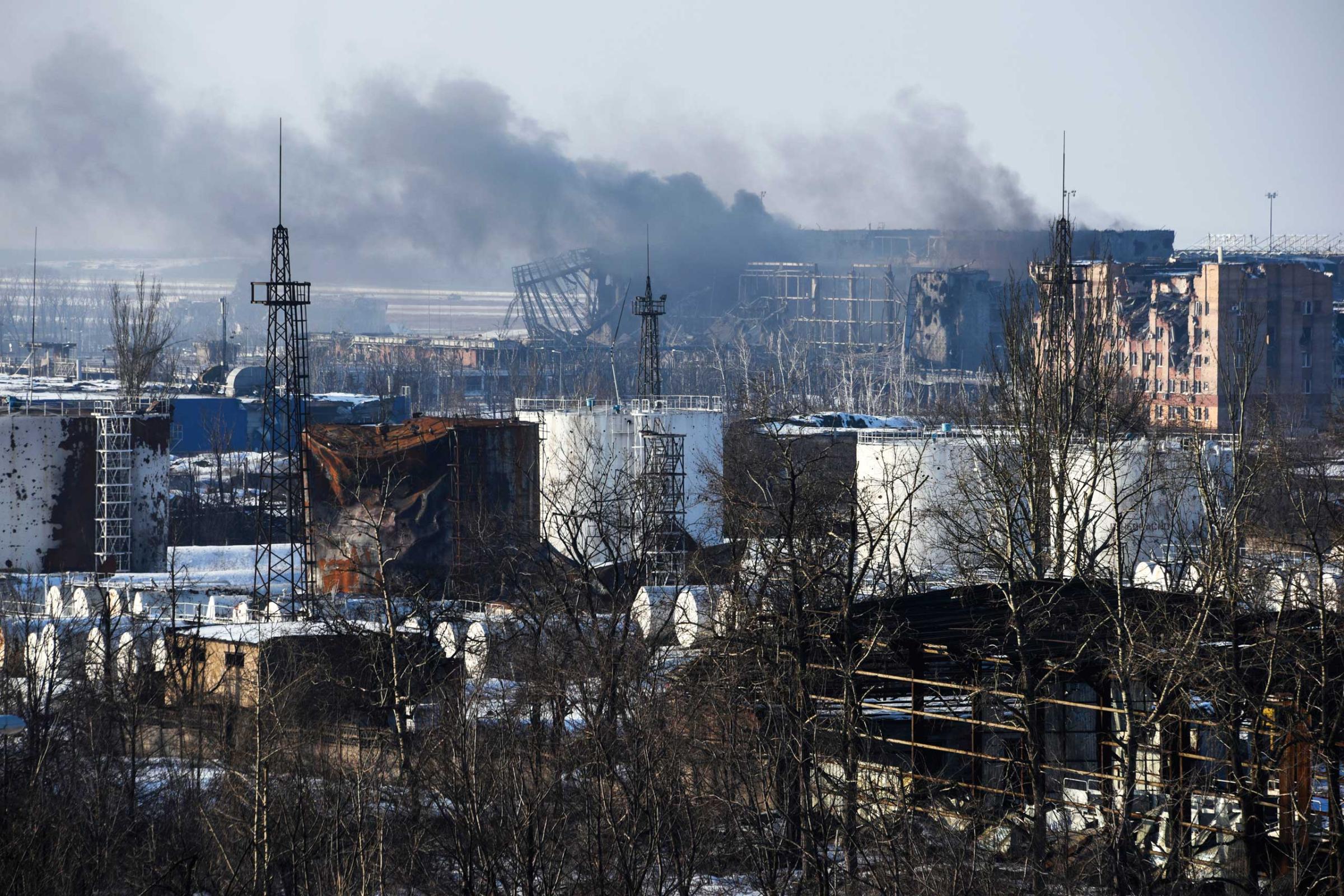
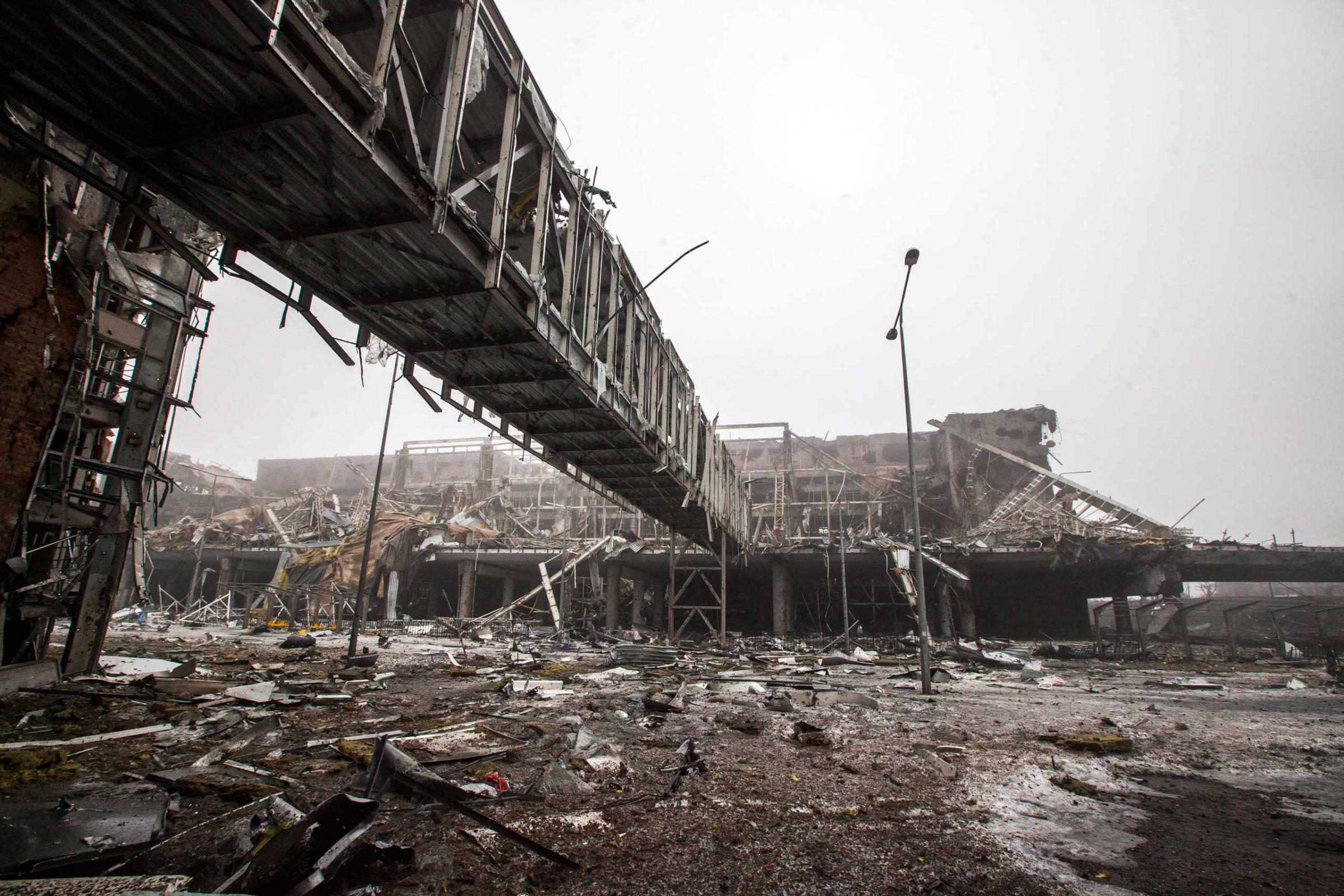
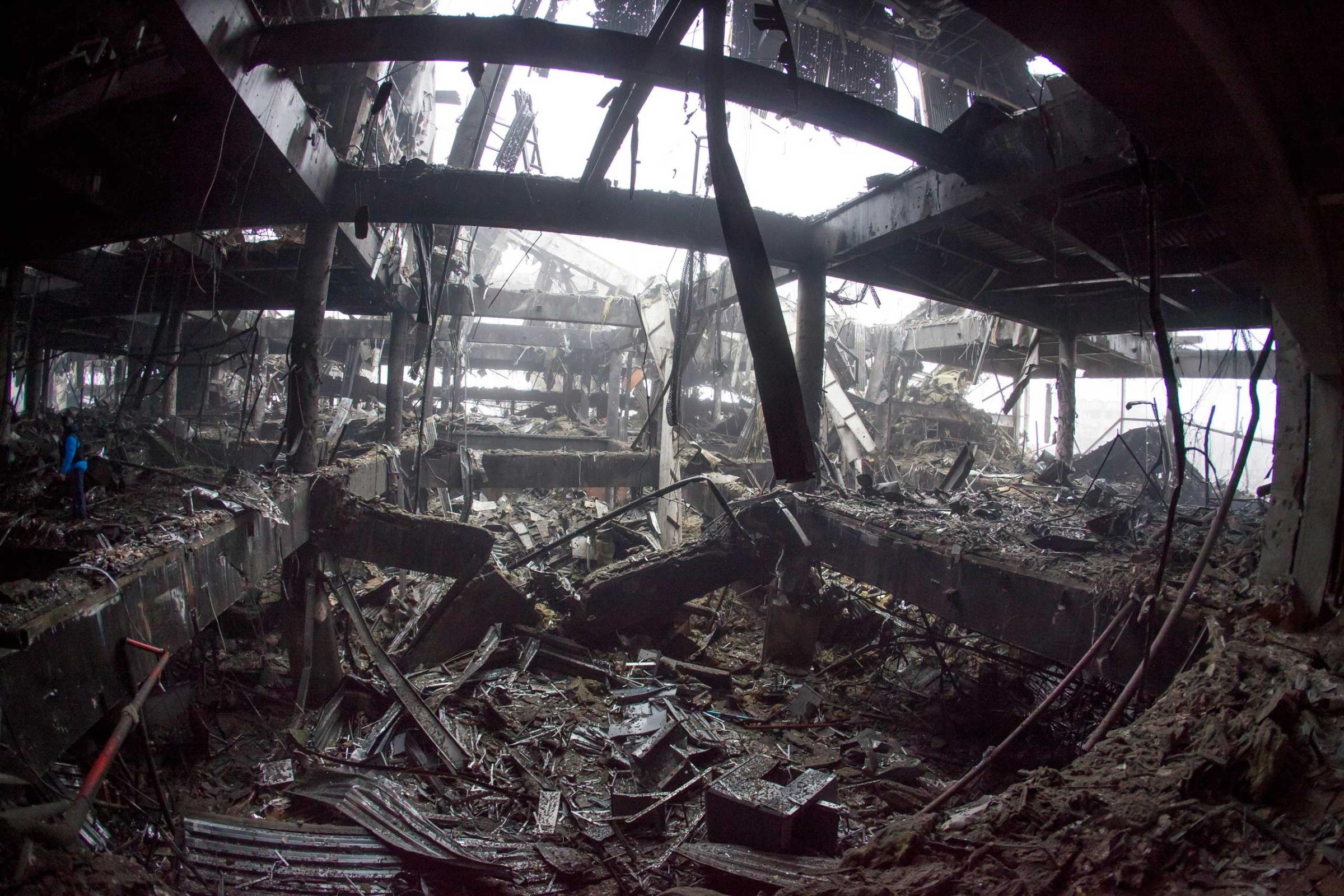
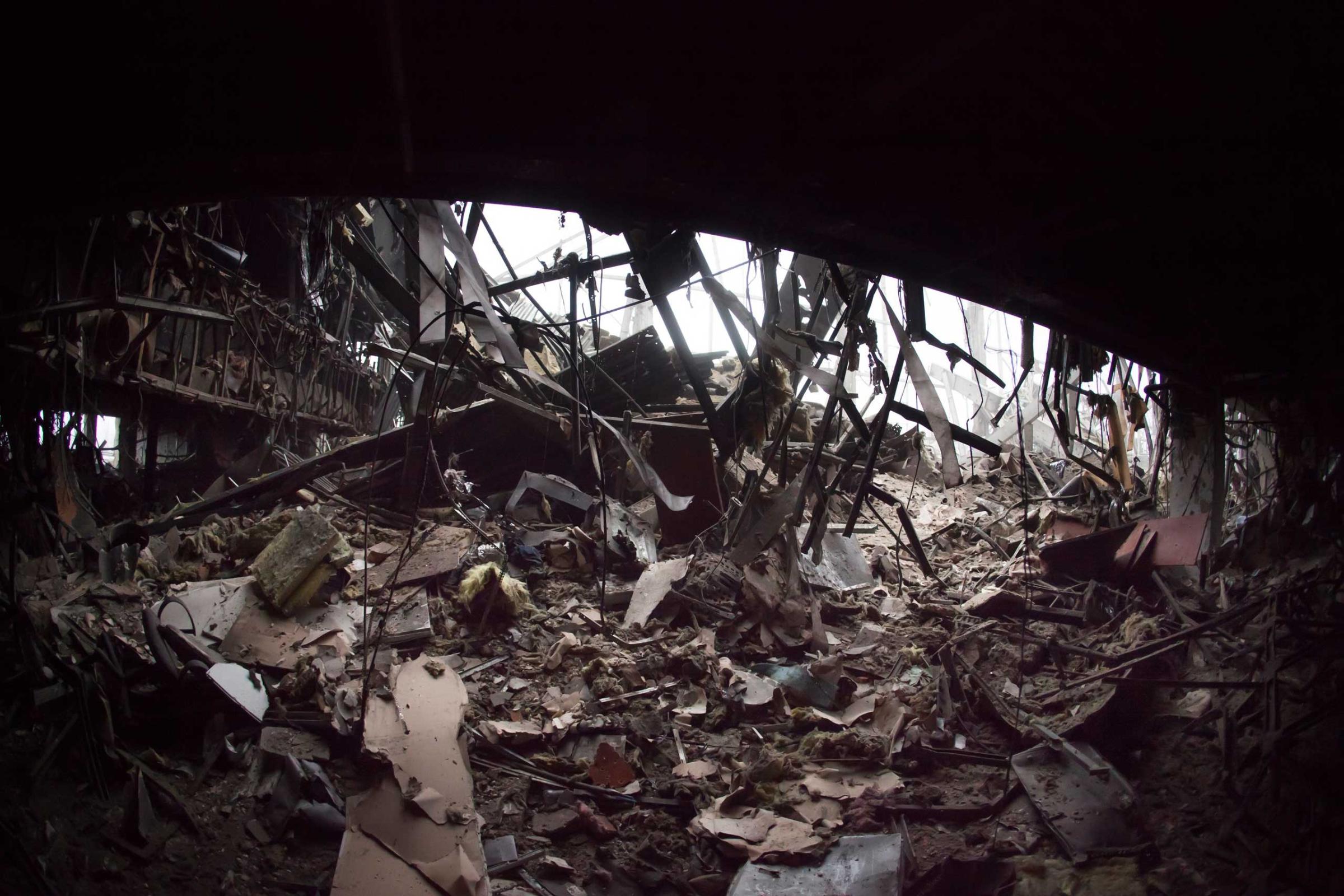
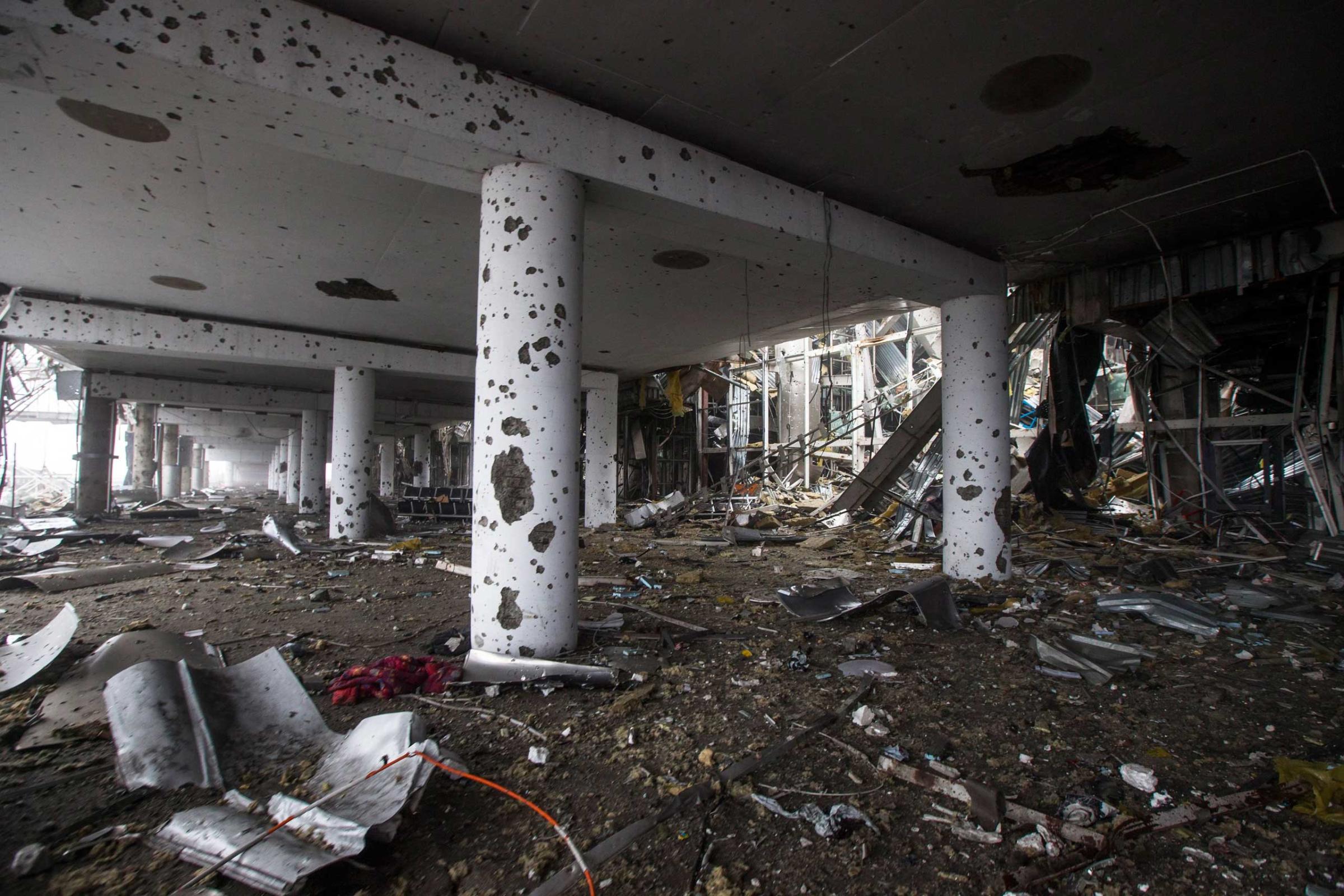
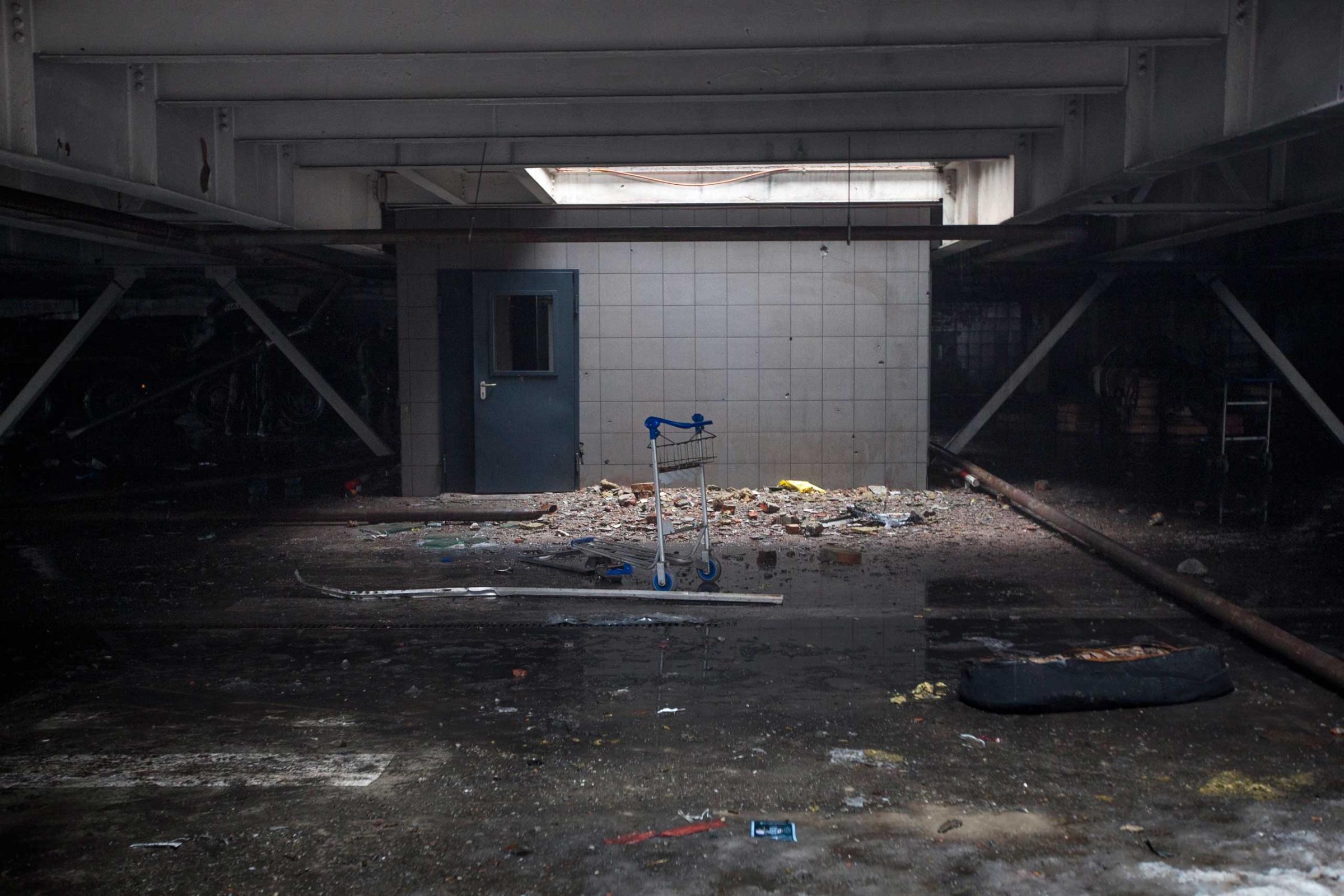
In his speech Thursday Kerry called for “an immediate commitment now to a real cease-fire, which is not just a piece of paper,” hinting at the failed diplomatic efforts of the peace agreement signed in Minsk in September. Though it briefly reduced the conflict, it has been violated at an increasing frequency, with separatists taking control of 200 square miles of the country, including the Donetsk airport.
It is with this recent surge in violence in mind that the Obama administration has been deliberating over whether to send “defensive weapons” to Ukraine. (At the moment, the U.S. only provides non-lethal assistance to Kiev troops). Kimberly Marten, professor of Political Science at Barnard College, Columbia University, says “it’s possible that the threat of sending U.S. weapons to Ukraine is a tactic to get Putin to take negotiations more seriously.”
Whether it’s an effective tactic or not remains another matter altogether. “Russia never gives in to demands. It’s just not Russia’s style, and it’s certainly not Vladimir Putin’s style,” says Nixey. “Even if it’s the economically rational thing to do, that is trumped in favor of the Russian nationalist argument, which it sees as defending its interests at all cost. Russia may be weaker now but it is more determined.” Indeed, Putin’s approval ratings have been above 80% ever since the annexation of Crimea, despite Russia’s economic slowdown.
MORE Europe appeals to Putin’s ego as it seeks peace in Ukraine
But not everyone agrees that the time for diplomacy has gone. Sam Greene, director of the Russia Institute at King’s College London, believes there is now a desire in both Europe and in Moscow to see a resolution to this conflict, sooner rather than later. “The cost of running this war is mounting, politically and economically. The greatest damage to the Russian economy is caused by falling oil prices, but the sanctions are also making it more difficult,” he says. “And it’s difficult to hide the number of Russian men going to fight and not coming home.”
Some analysts argue that any sort of agreement would not be in Putin’s interests because losing the conflict would be an enormous political blow for the president, one he may not be able to withstand. But there is an alternative. Greene points out that the Kremlin may struggle to sustain the territory currently under separatist control, and is probably hoping for a frozen conflict — in which it neither wins nor loses.
It’s difficult to say whether a military solution — in the form of sending American weapons — will achieve anything that diplomatic negotiations cannot. Many NATO countries are concerned that it may give Putin the excuse he needs to openly send Russian troops into Ukraine and worsen the crisis altogether. “Sending U.S. weapons to Ukraine would bolster Putin’s claims of a threat to Russia, and could rally the Russian population around the idea that sending Russian troops to Ukraine is necessary to protect Russian sovereignty and security,” says Marten.
Analysts cannot predict the future but Russia seems less likely to compromise than the West. “The United States does not seem to have a plan for what happens next, if Putin escalates rather than backs down,” says Marten. “Are we prepared for a direct military confrontation with nuclear-armed Russia, in Russia’s backyard?”
Read next: Inside ISIS and Al-Qaeda’s Battle for Brand Supremacy
More Must-Reads from TIME
- Why Trump’s Message Worked on Latino Men
- What Trump’s Win Could Mean for Housing
- The 100 Must-Read Books of 2024
- Sleep Doctors Share the 1 Tip That’s Changed Their Lives
- Column: Let’s Bring Back Romance
- What It’s Like to Have Long COVID As a Kid
- FX’s Say Nothing Is the Must-Watch Political Thriller of 2024
- Merle Bombardieri Is Helping People Make the Baby Decision
Write to Naina Bajekal at naina.bajekal@time.com